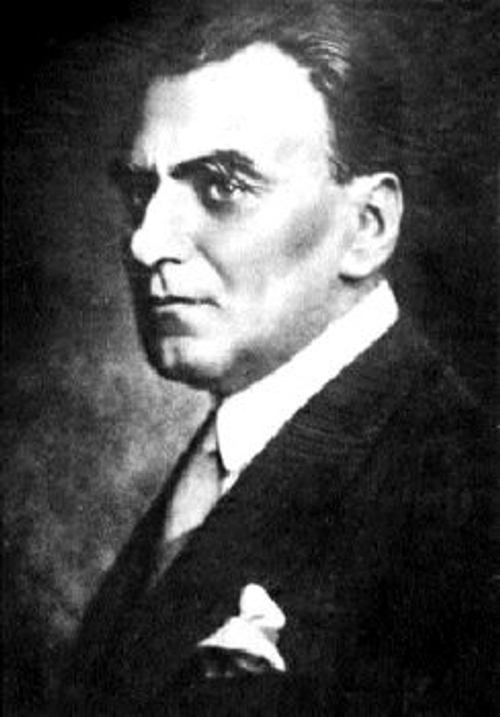|
Emile Cioran
Emil Mihai Cioran (, ; 8 April 1911 – 20 June 1995) was a Romanian philosopher, aphorist and essayist, who published works in both Romanian and French. His work has been noted for its pervasive philosophical pessimism, style, and aphorisms. His works frequently engaged with issues of suffering, decay, and nihilism. In 1937, Cioran moved to the Latin Quarter of Paris, which became his permanent residence, wherein he lived in seclusion with his partner, Simone Boué, until his death in 1995. Early life Cioran was born in Resinár, Szeben County, Kingdom of Hungary (today Rășinari, Sibiu County, Romania). His father, Emilian Cioran, was an Orthodox priest, and his mother, Elvira, was the head of the ''Christian Women's League''. At 10, Cioran moved to Sibiu to attend school, and at 17, he was enrolled in the Faculty of Literature and Philosophy at the University of Bucharest, where he met Eugène Ionesco and Mircea Eliade, who became his friends. Future Romanian philosop ... [...More Info...] [...Related Items...] OR: [Wikipedia] [Google] [Baidu] |
Nihilism
Nihilism (; ) is a philosophy, or family of views within philosophy, that rejects generally accepted or fundamental aspects of human existence, such as objective truth, knowledge, morality, values, or meaning. The term was popularized by Ivan Turgenev, and more specifically by his character Bazarov in the novel '' Fathers and Sons''. There have been different nihilist positions, including that human values are baseless, that life is meaningless, that knowledge is impossible, or that some set of entities do not exist or are meaningless or pointless. Pratt, Alan.Nihilism" ''Internet Encyclopedia of Philosophy''. . Scholars of nihilism may regard it as merely a label that has been applied to various separate philosophies, or as a distinct historical concept arising out of nominalism, skepticism, and philosophical pessimism, as well as possibly out of Christianity itself. Contemporary understanding of the idea stems largely from the Nietzschean 'crisis of nihilism', from which d ... [...More Info...] [...Related Items...] OR: [Wikipedia] [Google] [Baidu] |
Nae Ionescu
Nae Ionescu (, born Nicolae C. Ionescu; – 15 March 1940) was a Romanian philosopher, logician, mathematician, professor, and journalist. Near the end of his career, he became known for his antisemitism and devotion to far right politics, in the years leading up to World War II. Life Born in Brăila, Ionescu studied Letters at the University of Bucharest until 1912. Upon graduation, he was appointed teacher at the Matei Basarab High School in Bucharest. When World War I began, he traveled to Germany for additional studies at the University of Göttingen. Romania's entry into the war on the Entente side prevented him from returning, but he was awarded a doctorate in philosophy in 1919 from the University of Munich. His thesis was entitled ''Die Logistik als Versuch einer neuen Begründung der Mathematik'' ("Formal logic as an attempt at a new foundation of mathematics"). Back in Romania, after another brief stint teaching, Ionescu was appointed assistant to Constantin Rădule ... [...More Info...] [...Related Items...] OR: [Wikipedia] [Google] [Baidu] |
Ludwig Klages
Friedrich Konrad Eduard Wilhelm Ludwig Klages (10 December 1872 – 29 July 1956) was a German philosopher, psychologist, graphologist, poet, writer, and lecturer, who was a two-time nominee for the Nobel Prize in Literature. In the Germanosphere, he is considered one of the most important thinkers of the 20th century. He began his career as a research chemist according to his family's wishes, though soon returned to his passions for poetry, philosophy and classical studies. He held a post at the University of Munich, where in 1905 he founded the ; the latter was forced to close in 1914 with the outbreak of World War I. In 1915, Klages moved to neutral Switzerland, where over the following decades much of his mature philosophical works were written. Klages died in 1956. Klages was a central figure of characterological psychology and the school of thought. Prominent elements of his philosophy include: the opposition between life-affirming and life-denying ; reality as the on-g ... [...More Info...] [...Related Items...] OR: [Wikipedia] [Google] [Baidu] |
Heidegger
Martin Heidegger (; ; 26 September 188926 May 1976) was a German philosopher who is best known for contributions to phenomenology, hermeneutics, and existentialism. He is among the most important and influential philosophers of the 20th century. He has been widely criticized for supporting the Nazi Party after his election as rector at the University of Freiburg in 1933, and there has been controversy about the relationship between his philosophy and Nazism. In Heidegger's fundamental text ''Being and Time'' (1927), "Dasein" is introduced as a term for the type of being that humans possess. Dasein has been translated as "being there". Heidegger believes that Dasein already has a "pre-ontological" and non-abstract understanding that shapes how it lives. This mode of being he terms " being-in-the-world". Dasein and "being-in-the-world" are unitary concepts at odds with rationalist philosophy and its "subject/object" view since at least René Descartes. Heidegger explicitly disag ... [...More Info...] [...Related Items...] OR: [Wikipedia] [Google] [Baidu] |



